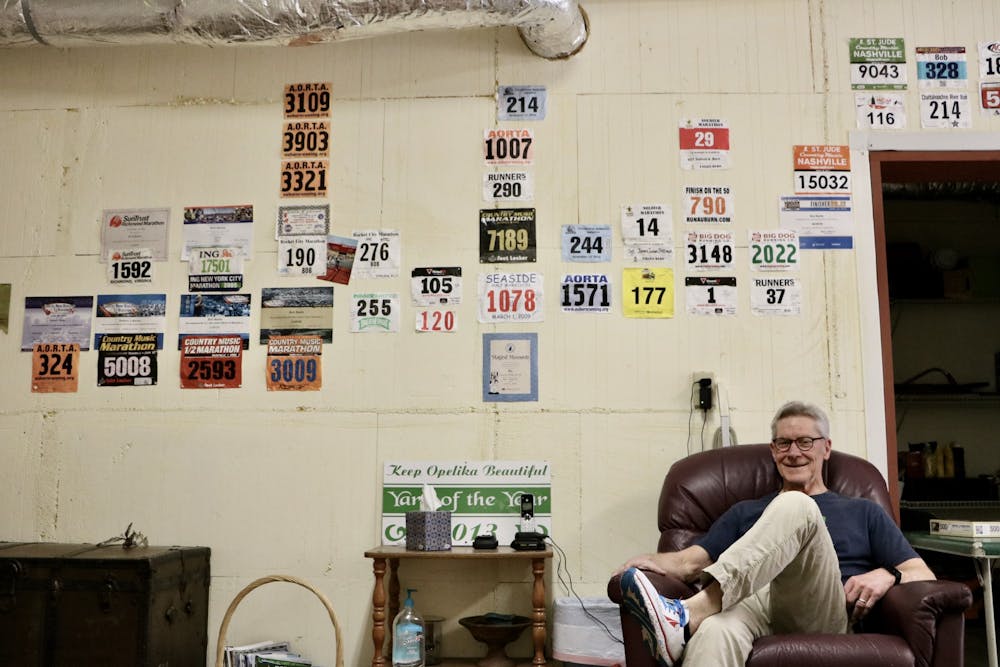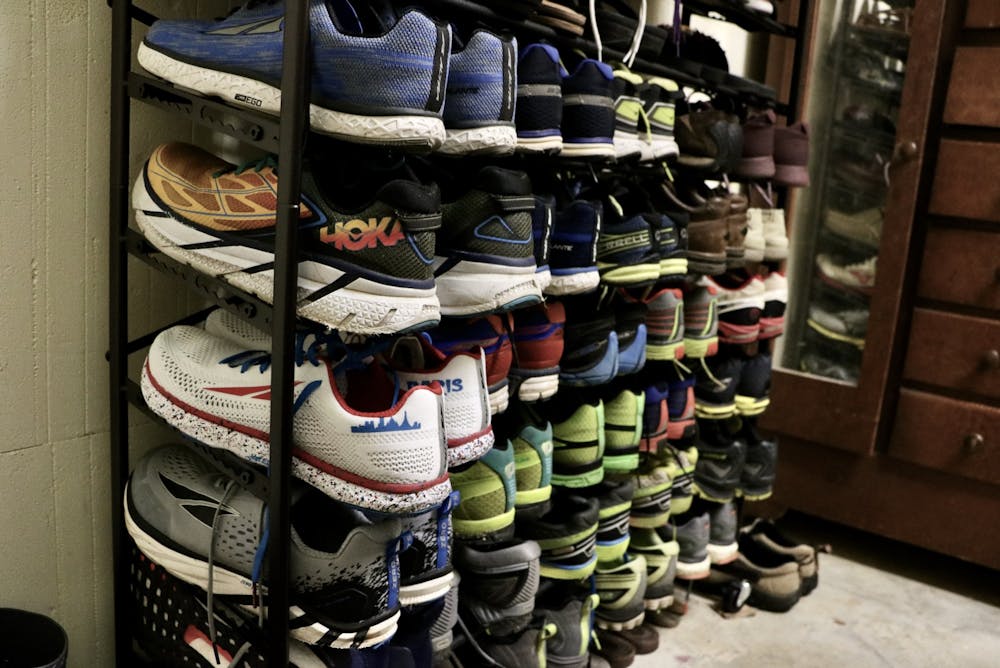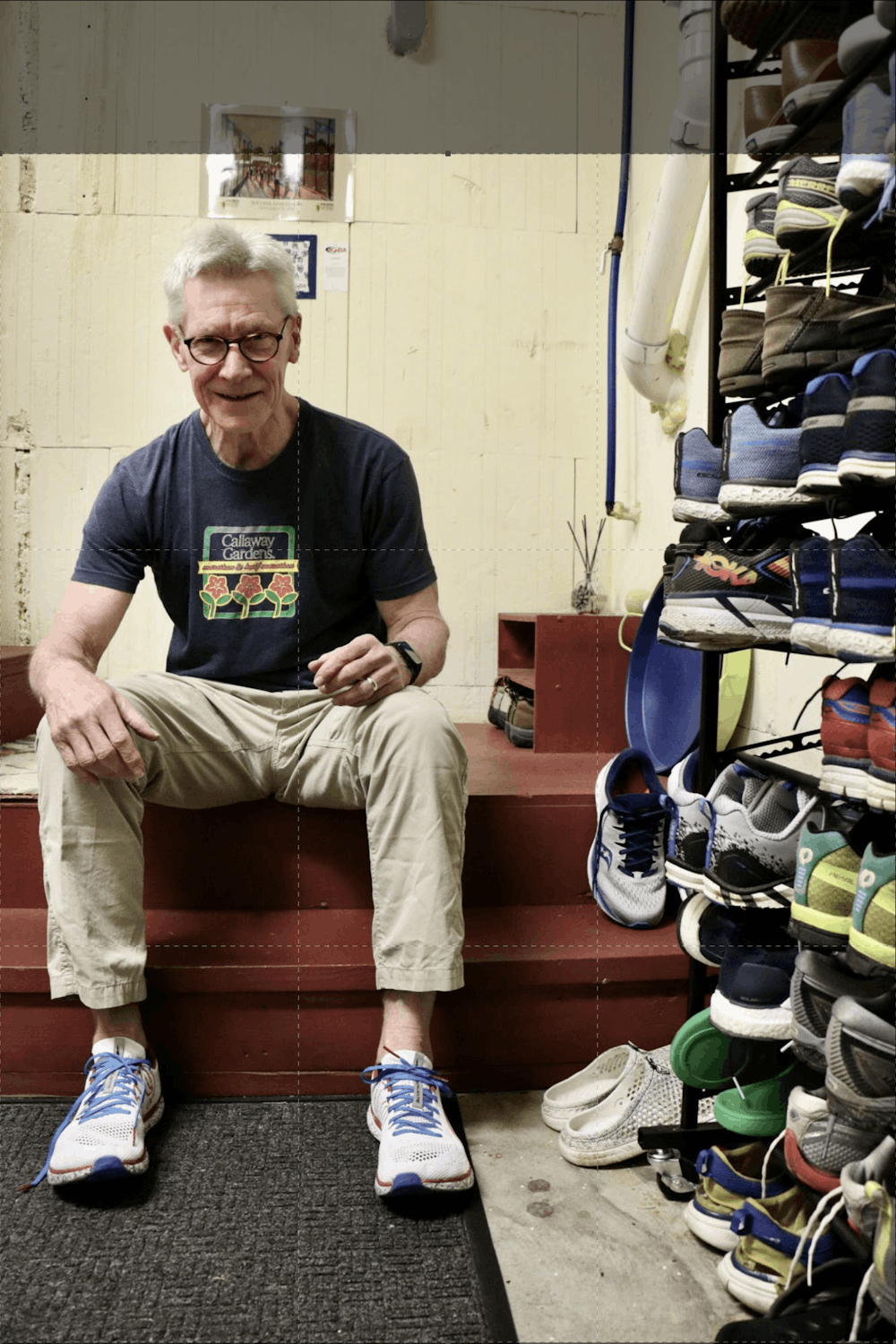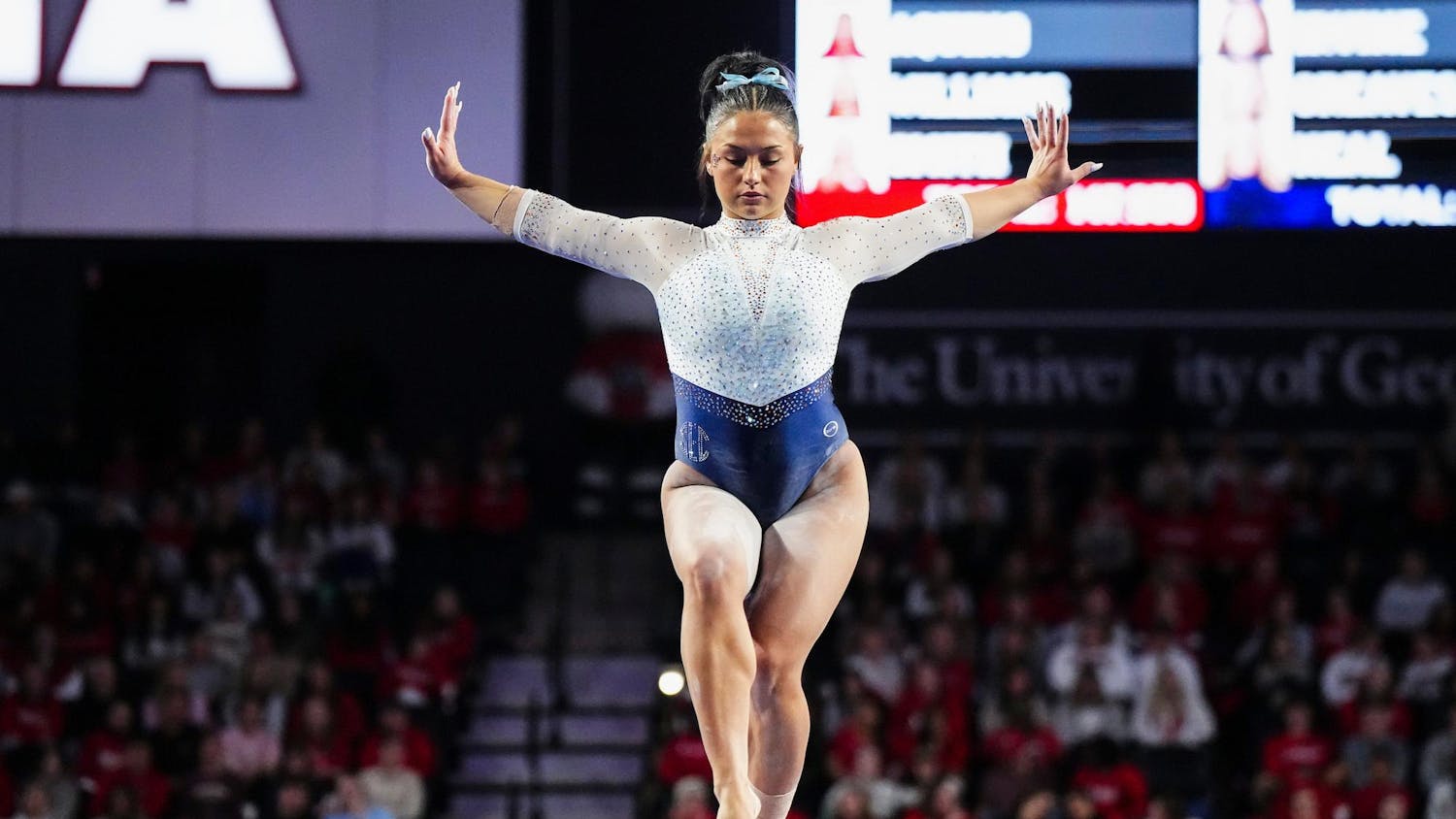Trees pass by as rubber soles connect with pavement.
Bob Banks has run through this scene and others many times during his stretch as a runner. In fact, he's run so much that he was named Auburn Opelika Running and Track Association's 2019 farthest runner. In 2019, he ran 1,831 miles, which set him above the rest.
Banks began running in the 1970s, but he's stopped and restarted a few times, overcoming injury and setbacks.
Growing up, Banks, 68, knew nothing about running. When he attended Dadeville High School in the 1960s, there were only two sports to choose from: football and basketball. Cross country and track weren't options.
Banks started at Auburn University in 1970 and, like many freshmen, struggled to keep up academically. But most of all he was lost.
“It was like a train wreck up to that point," he said.
In that same year, he agreed to go on a blind date with a woman named Nanette Brittain. She had conditions for dating Banks, who was still struggling with academics: two hours of studying before every date. Banks willingly obliged, and Nanette later became his wife, and he graduated with a degree in history in 1975.
"Then it was like putting the pieces of the train back together,” Banks said.
Throughout his time at Auburn, Banks picked up running.
“The first time that I was attracted to running was when Frank Shorter won the marathon in the '72 Olympics and I thought to myself, ‘Now, what is that?’” Banks recalled.
After witnessing Shorter's victory, Banks decided to take a track course taught by Auburn Track Coach Mel Rosen. For the class, Bob was running 400-meter sprints. Distance running was out of the picture; that one lap around a track was it.
Soon after, he started to go on longer and longer runs, and Banks realized he enjoyed it.
“I loved it,” he said. “In 1976 in LaGrange, Georgia, I was considered a freak because I was running three or four miles a day, and nobody was running back then.”
In 1977, Banks and his wife moved back to Opelika. That was when he was turned on to a group of runners, the Auburn Opelika Running and Track Association.
“Now these were like real runners,” Banks said.
Don Thaxton was one of these real runners in AORTA, Banks said. He took Banks under his wing, acting as a mentor, and advised and trained him as a runner.
In November 1977, Thaxton convinced Banks to run the Atlanta Marathon the following January. At the time, Banks was only running 3–4 miles a day, far fewer than a marathon's 26.2 miles.
In blind trust, Banks recalled asking, “Well Don, what do I need to do to get ready?”
At Thaxton's recommendation, Banks began running nine miles, seven days a week.
At some point during training, he asked, “Well Don, how fast should I run this thing?”
Thaxton advised that being 26 years old, Banks should run a three-hour marathon. Banks, with practically nothing to compare that number to in order to find an appropriate pace, still managed to make time. He finished the race in 2 hours and 57 minutes, which left him utterly exhausted, laid out on the grass.
This came entirely to Thaxton's surprise, who didn’t think Banks was able, or maybe crazy enough, to try and make that time.
That race was special to Banks, not only because it was his first marathon; it was also his 26th birthday, his first 26-mile race and on race day he wore his old football jersey, with the number 26 on the back.
“Twenty-six was my number” Banks said. “I mean, it just is. I kind of got stuck with that number, I guess, since my junior year in high school.”
Banks running career didn't end with the Atlanta Marathon. He continues to run now, so many years later.
"The reason I am running today at all is because God has a sense of humor.”
Banks marathon times continued to improve. His record is 2 hours and 47 minutes, which qualified him for the famed Boston Marathon.

Bob Banks, AORTA's farthest runner in 2019, sits in front of the memories of past races on Tuesday, Feb. 25, 2020, in Opelika, Ala.
“I guess you might say I was getting a little cocky at that point,” he said.
Banks began to train for the famed race with AORTA.
“We were just out on an easy 10 miler,” he began. “When a sharp pain came through my right knee.”
Banks said he managed to ignore the pain, but after the run he broke down and went to an orthopedic doctor.
The doctor explained to him, at 28 years old, he had completely worn through the cartilage in his right knee — it was bone on bone. Once the cartilage is lost, the damage is done. Doctors told him he could live a perfectly normal life, but he would not run, Banks said.
“So there I am at 28, and all of a sudden I’m an ex-runner,” he said. “And I had to just kinda put that one away — I guess that chapter is over.”
Banks turned to new ways of exercising, such as playing softball in First Baptist Opelika’s church softball league. One game when Banks was 38-years old, he took a line drive to the chest. When he woke up the next morning, he said it felt like an elephant was on his chest, and upon standing up, everything went black.
That softball had damaged the electrical system in his heart, and since that day, Banks' heart has been run by a pacemaker. Running appeared even further out of the picture.
“The thought of running was nowhere in my mind,” he said.
For Banks, who speaks about running like it is as essential as breathing, it didn't seem like he would move on from running, even with the odds stacked against him.
His daughter was living in New York at the time and called to tell him that she wanted to run in the 2003 New York City Marathon. Banks was ready to come cheer her on, but she had another idea in mind.
“No dad, I want you to start training. Let’s do it together," Banks recalled Michael saying.
He responded immediately, “Girl, you’ve lost your mind.”
But Banks could not let go of the idea, so he called her back the next day:
“I won’t promise I’ll do it, but I promise I’ll try."
Since receiving the news about his bone-to-bone knee that put a pin in his running career, 20 years had passed, and the running game had changed dramatically. He basically had to relearn how to run well and take care of his body.
“So anyway, I’m running and I’m getting better," Banks said. "But better is just better than not running at all. I am still a long way from there."
The New York City Marathon accepts applications from runners and selects from a set of them via raffle. Banks and his daughter put their names into the raffle to be chosen for the marathon. Banks got in, but his daughter did not.
“The only reason I'm doing this is for her,” Banks remembered telling himself.

Bob Banks, AORTA's farthest runner in 2019, stands in front of his wrap from the 2003 New York City Marathon on Tuesday, Feb. 25, 2020, in Opelika, Ala.
Banks said he believes God was writing his story, and he said he trusted that God would reveal to him a new reason to run. Banks began thinking about Becky Guinn, a woman that he had met through church. She had dealt with some heart issues in the past and went in for a somewhat routine surgery. The surgery resulted in complications that required the amputation of both of her arms and legs.
Banks said he felt a push to go and visit Becky that would not let him go. So, he went to her hospital room bearing no ways to change her situation. As he entered, he said she had the biggest smile he’d ever seen.
He recalls her looking at him and saying, “You know Bob, this is not what I expected. But God is not surprised and I’m just going to have to trust Him.”
Banks said he knew why he had to go there. Becky and her husband's lives had been changed forever as a result of the surgery. On top of that, they needed to deal with the extensive medical bills they were charged with. Banks knew how he could help: run.
He had his new reason to run. Banks decided to run the 2003 New York City Marathon as a fundraiser to help the Guinns. The training, he said, was not easy, and many times he was tempted to quit, but he knew that he couldn’t now.
The money he raised bought asphalt for Guinn. It sounds small, Banks said, but the asphalt was used to pave a path for Becky’s wheelchair. The path led to Guinn's garden, allowing her to tend to her garden once again.
Banks said God put things and people on his heart that simply would not go away, would not let him quit.
Banks hasn't let the lack of cartilage in his knee or the pacemaker controlling his heart keep him from his passion, so he continues to run today, not always for a cause, but because he can.
“I basically run because I get to,” Banks said.
Banks' best marathon time in his "second life" is 3 hours and 40 minutes. He has over 20 pairs of running shoes to choose from for his 4 a.m. run.
“Just 'cause I can’t run, doesn’t mean I can’t walk. Don’t let what you can’t do keep you from doing what you can do.”

Bob Banks, AORTA's farthest runner in 2019, presents his collection of running shoes on Tuesday, Feb. 25, 2020, in Opelika, Ala.
Do you like this story? The Plainsman doesn't accept money from tuition or student fees, and we don't charge a subscription fee. But you can donate to support The Plainsman.





